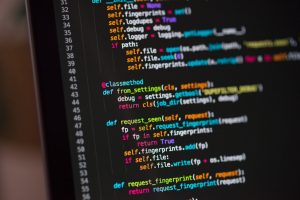
When it comes to school funding, policymakers are perpetually looking for creative solutions to guarantee that schools receive necessary resources to provide high quality education to students. Among the solutions that have been hotly debated in recent times is using casino revenues to support educational causes.
This idea raised very exciting as well as opposing points of view among educational stakeholders, prompting continuous debates. Such debates include the question of whether taxes generated from casinos and gamblers playing casino games on mobile are ideal for educational funding.
This article looks into the effect and role casinos taxes have on school funding, exploring its positive sides and demerits.
The Growth of Casino Taxes for Education
The proposal of channeling tax revenue from casinos to education has been around for a few years. In fact, it has been introduced in many states like Nevada, New Jersey and Pennsylvania in the United States. The reason behind this approach is straightforward.
Casinos generate tremendous amounts of money, so if some of this income was channeled to the educational sector, difficulties in coming up with funds to finance the schools would be solved.
Generally, casino taxes marked for education are aimed at supporting the existing funding programs rather than being the main source of the funding.
Despite the fact that such grants do not completely substitute for district budgets, they still remain very relevant. This is because there are many school districts that are insufficiently financed and often experience budget cuts and program reductions.

The Benefits
- Increased Funding: Taxes collected from casinos provide additional financial sources for the education systems. As such, it fills the existing budget gaps, allowing schools to tackle issues like teacher salaries or the supplies for classrooms and extracurricular programs.
- Resource Enhancement: By earmarking the modernization of schools and learning materials from casino taxes, educational institutions can be equipped with the latest technologies, facilities, and equipment. Thus, employees and students can have the best possible educational experience.
- Equity and Access: Casino tax revenues can be targeted at educational programs that are designed to achieve equality in education outcomes. This is done by enabling the less privileged kids to have a chance to attend top schools which facilitates their success.
- Community Development: Some states and provinces require that a certain percentage of casino taxes be used to fund community development projects, which includes, among others, education. Investments of this kind can boost local economies, provide jobs, and make public improvements, which improves the community as a whole.
The Challenges
- Moral and Ethical Concerns: Critics say that making an entity which is funded by gambling activities to support education raises moral questions. This is because the funding involves an industry characterized by addiction, social corruption, and exploitation.
- Dependency on Volatile Revenue: Tax revenues from casinos are essentially unpredictable, mainly due to fluctuations in factors like the economy, end users’ behavior, and changes in the casino regulation system. Such dependence on alternative revenue streams can create inconsistencies in budgeting plans of the educational institutions.
- Perception and Stigma: Some stakeholders believe the overreliance on casino taxes is a sign of distress and that it is a demonstration of the misplacement of public funding priorities for education. This bias can be a threat to public confidence in the public education system and open questions on the sources that are used to fund education.
- Regulatory Challenges: The legal and regulatory environment surrounding casino taxes is often complex and heavily influenced by politics. Putting in place oversight systems to guarantee that the tax revenues raised from casinos are equitably and transparently distributed to the education sector would be necessary for them to be effective.
The Future of Casino Taxes in Education Funding

Considering the ever-diminishing funding for education, the issue of the role of casino taxes will definitely continue to give rise to debates and explorations. Even though some jurisdictions can still rely on this revenue to continue to fund their education initiatives, some others may go for alternative approaches as a way of making funds for schools sustainable.
Ideally in the future, policy makers, educators and the community need to sit down and discuss whether the advantages of fund raising through using casino taxes outweigh its disadvantages. This involves the development of programs designed to limit the occurrence of harmful effects associated with gambling and the multiplication of positive impacts of this income for educational results.
The issue of casino taxes and education funding overlaps making a complicated case with economic, social, and ethical considerations. Right now, the supplementary funding can well be advantageous for the improvement of educational approaches and provision. However, it also invokes profound considerations about the leading role of an immoral industry in ensuring a collective good.
In the process of dealing with the issue, it is important to weigh the pros and cons of every solution. Thus, a middle ground is sought which will ensure financial viability while opening up for moral considerations to not be sidelined.
Through the implementation of a transparent governance system, priority placement of equity and focus on students’ needs, policymakers can find ways to tax casinos as supplementary funding sources for education and at the same time address their societal side-effects.








